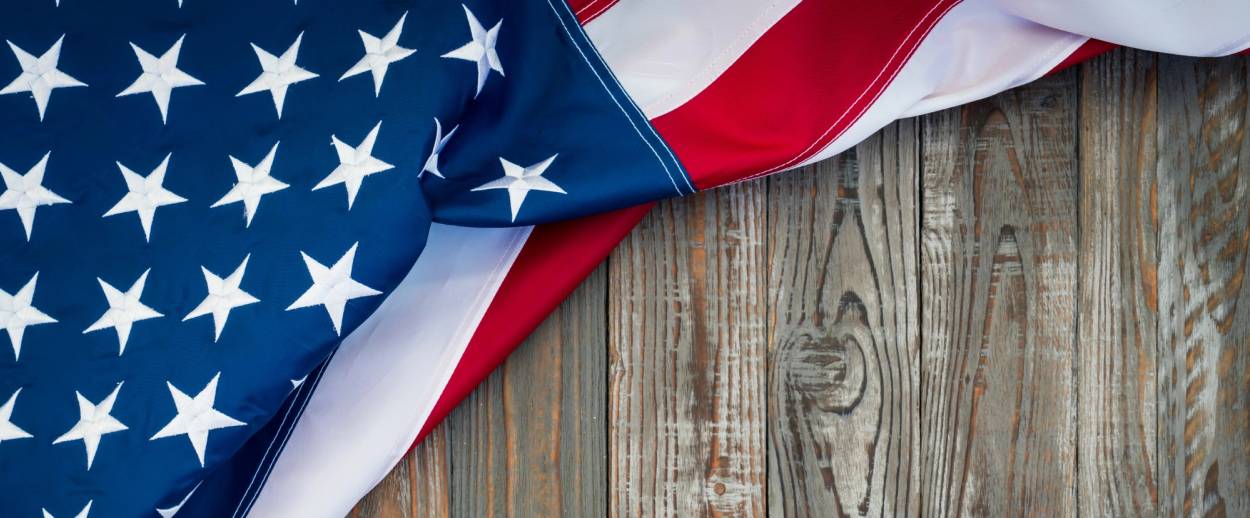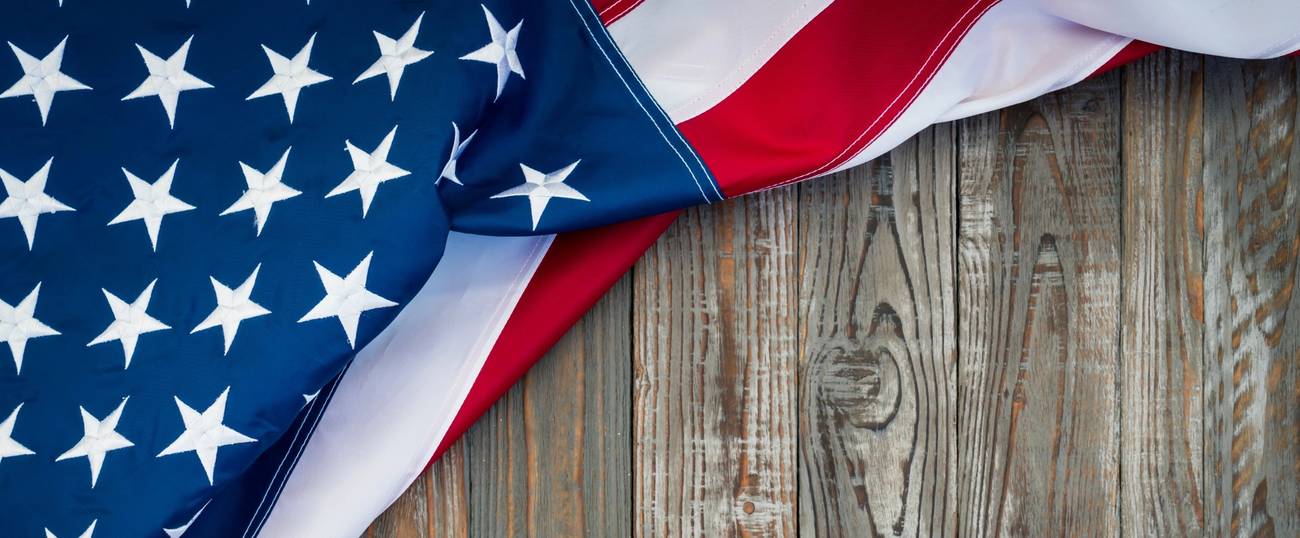Our Fourth of July Seder
Celebrating America’s birthday with a Passover twist makes me feel both more American and more Jewish




The July 4th seder is an idea that has been invoked across the political spectrum, from conservative talk show host Dennis Prager’s scripted, 10-minute ceremony to last year’s suggestion by New Yorker writers Alan Burdick and Eliza Byard that a July 4th seder adds “promised land” meaning and purpose to a holiday that is otherwise marked by hot dogs, beer, and fireworks. They also note that the American founders explicitly saw the exodus of the Israelites from Egyptian bondage as a model for their own birth of freedom.
But even before coming across Prager’s “haggadah,” my family had already been practicing our own brand of this American Jewish mash-up of an observance, with Thomas Jefferson’s document as our preferred ritual text.
It all began when I met my Shabbat-observing, American flag-waving, liberal husband Charlie on the National Mall in Washington, D.C.—on July 4th!—a holiday I hadn’t regarded as much more than another hot summer day in a series of hot summer days, albeit one with fireworks as well as fireflies.
Although I didn’t realize the depth of Charlie’s affection and reverence for all things American that fateful day on the Mall, after a few years of marriage, I slowly began to understand that listening to multiple renditions of all the verses of America the Beautiful would be in my American Independence Day future—as would hosting an all-American, kosher red-meat barbecue for friends and family.
Yet with the passage of several more Passovers and American Independence Days, when Charlie decided that he wanted to take our July 4th observance to the next ritual level, all I could think of was the seder tune, “Dayenu” or “Enough already!” Didn’t our family have sufficient ritual going on when it came to Shabbat, Rosh Hashanah, and especially Pesach? Wasn’t one of the beauties of this U.S. holiday that we could dispense with multiple prayers and prohibitions, and just partake of the traditional hamburgers, hot dogs, coleslaw, and pickles? Those who wanted to say a blessing could always make a motzi (blessing over bread) over an enriched nondairy white bread bun.
But then I saw how Charlie teared up, at the July 4th table of another Jewish friend who is also fervently American, as the friend read aloud George Washington’s 1790 letter to the Hebrew Congregation of Newport, Rhode Island. And after listening to Washington’s words, that the new nation ”gives to bigotry no sanction” and especially his closing words,
May the children of the stock of Abraham who dwell in this land continue to merit and enjoy the good will of the other inhabitants–while every one shall sit in safety under his own vine and fig tree and there shall be none to make him afraid.
I felt like I couldn’t say no to Charlie’s wish for a deeper Independence Day observance.
And so began our July 4th seder, in which the main event is a round-the-table reading of the Declaration of Independence. Unlike the Passover seder, however, we start with the food, interspersing discussions of freedom with show-and-tell activities, such as Name Your Favorite American, while passing around platters of grilled hamburgers, hot dogs, and chicken. And then we move on to the reading of Jefferson’s words, from “When in the course of human events” to the last line, “we mutually pledge to each other our Lives, our Fortunes and our sacred Honor,”—which I believe is almost Jewish prayer-like in its invocation of G-d, unity, and community.
As the years went on, my attitude toward our July 4th seder also began shifting—whether because of na’aseh v’nishmah (we will do and we will understand), as the recalcitrant Israelites declared they would do in response to receiving the Torah or because I often laugh out loud while setting our seder table with flag-colored dishware and a George Washington talking doll and Alexander Hamilton bobblehead, like a Mutt and Jeff duo, as the centerpiece. As a traditionally observant Jew who also leans idiosyncratically and politically to the left side, I have also found that celebrating America’s birthday with a Passover twist makes me feel both more American and more Jewish.
It’s also been gratifying to know that we were ahead of the curve in our July 4th observance, although I don’t know that conducting such a seder would appeal to most Americans. But at this moment in U.S. history, with the deep red state/blue state fissures, uncertainty over the nation’s future, and more overt and frequent expressions and incidents of hate and anti-Semitism across the land and the world, I can’t think of a better way to celebrate the birthday of what my Eastern European immigrant grandmother called the goldene medina (golden land) than sitting with friends and loved ones and saying thanks for religious freedom. Isn’t this why America came about in the first place? And why my grandmother came to America in the 1920s? Bubby used to make her apple pie like they did in the old country—with a crust infused with shredded carrots. For our July 4th seder, however, we rely on the kindness of our friend Julie, the wife of a retired Jewish U.S. Navy commander, who makes a mean and wholly American apple pie. It turns out it’s also the perfect afikomen.
Marla Brown Fogelman is a freelance writer in New York City. Her work has appeared in The Washington Post, Parents, The Forward, Moment, and other national and regional publications.